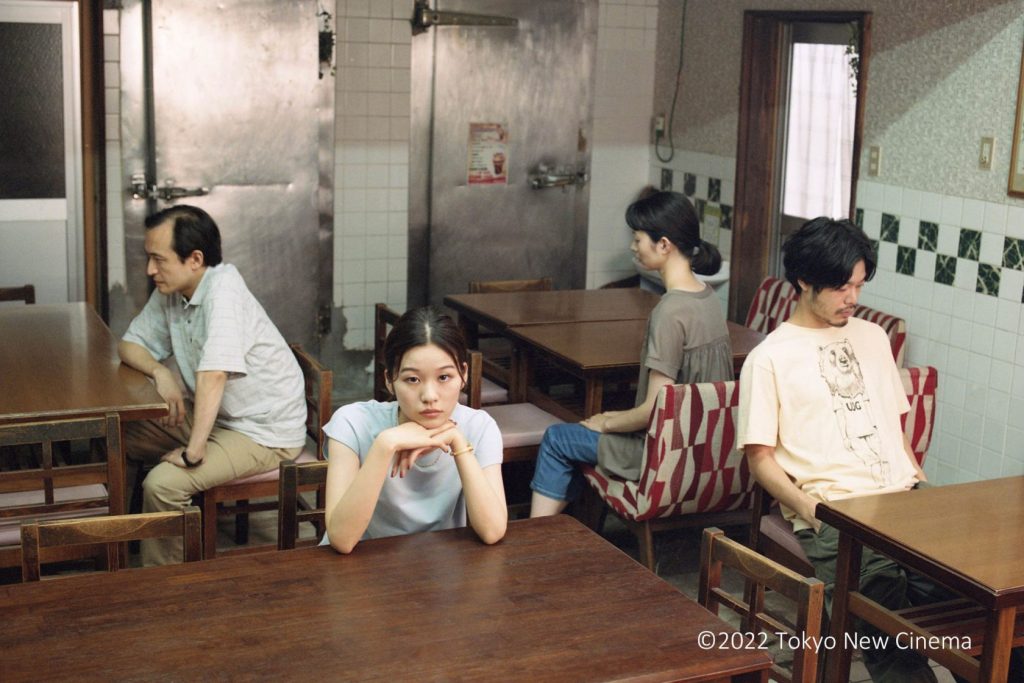In ‘Lonely Glory’, Keitaro Sakon explores the inner turmoil of a twenty-something woman named Haruka, in her ambitious pursuit of success. Princess Kinoc reviews this film from this year’s Japanese Film Festival
In the eyes of Haruka and everyone else, she is very good at her job. She knows it. Her colleagues and her boss acknowledge it. Yet the consequences of her no-holds barred attitude at work to succeed and stop at nothing come to an end when a barrage of anonymous complaints against her forces her to resign from her work in the city.

Watashi no mite iru sekai ga subete or The World I See is Everything is more commonly known in this year’s Japanese Film Festival – Independent Cinema list as Lonely Glory. The pot that brews and stirs this slightly comedic and intense drama is the different intentions of its main character, Haruka, played by Kokoro Morita. I say different because Morita impressively shifts her mood in between scenes — from devious to concerned — and she doesn’t refrain from doing so every so often. Her intentions play the focal point in the film which is probably why they chose the English title as Lonely Glory as opposed to what its literal translation is.
After a tough day at work, Haruka learns of her mother’s passing. And like droplets from a rainy gloomy day, these series of events happen very quickly. She reunites herself with her three siblings, still living in the countryside and in their small convenience store / small restaurant / ukay-ukay place too (I saw some clothes hanging at one corner of the store???). These small shops are prevalent in Japan’s countryside, and perhaps due to the economic downfall caused by the pandemic, these too have lost so many sales in the previous years. Besides it takes so many hours to get to the city proper so might as well have everything all in one place, right? But Haruka, being the nearly established entrepreneur herself, sees the shop as an opportunity to get back on her feet. She then proposes to her siblings that they sell the place. Obviously, the three who have been living there most of their lives disagree. But the persistent Haruka thinks otherwise and concocts a plan: to convince each one to give the place up so she could finance her newest business venture… once again her intense attitude comes into play, and she stops at nothing even when we see that it’s her very siblings she’s up against.
Watch Lonely Glory on the Japanese Film Festival – Independent Cinema here.
It is unclear whether Haruka’s intentions are built by her experiences in university, if she was not the favorite child of her parents, or if she was neglected as a child by her siblings. She is a counselor by profession, having studied Psychology, and yet she says the worst things to anyone who gets in her way of achieving success. Her sister (Eriko Nakamura) says it best: “how can you say the meanest things to anyone and not understand how they would feel?”. When you look into Haruka’s eyes when she is being mean, you’d see her reconsidering what she said, or she fiercely means it to get what she wants.
Despite her flaws, Keitaro Sakon cleverly writes Haruka as a disruptive character. Without her, her siblings wouldn’t probably be able to confront their own lives and how they could move on from the death of their parents. The only problem with disruptive characters is that this leads them to forget how they should lead their lives on after the changes they made for others. This is probably why ‘Lonely Glory’ sounds like a fitting title.
The ensemble cast’s performances make up for what little information we have on their lives. It’s almost as if Sakon wants us to interfere with them, but he leaves us with the choice to just sit and watch as each sibling decide what happens next in their lives. Strangely enough, you wouldn’t see Haruka grieving as she remains focused on her goal. In that one final act towards the ending when her morally corrupt attitude has given her what she wants, it is unfortunate but, she finally pays the price.
You can still catch twelve independently-produced films from this year’s Japanese Film Festival – Independent Cinema selection. It’s free until the 31st of October. Check them out here.



